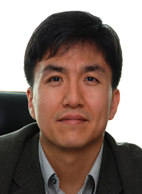people
Prof. Kwang-Hyun Cho of Department of Bio and Brain Engineering at KAIST has been recently elected editor-in-chief of the Systems Biology, an international journal published by the London-based Institution of Engineering and Technology (IET), the university authorities said on Wednesday (Sept. 23)
By the year 2012, Cho will oversee the editorial process of the journal covering intra- and inter-cellular dynamics, using systems- and signal-oriented approaches. IET, one of the world"s leading professional societies for the engineering and technology community, has a worldwide membership of more than 150,000.
Prof. Cho"s research interests cover the areas of systems science with bio-medical applications including systems biology and bio-inspired engineering based on molecular systems biology. He is currently an editorial board member of Systems and Synthetic Biology (Springer, Netherlands, from 2006), BMC Systems Biology (BMC, London, U.K., from 2007), Gene Regulation and Systems Biology (Libertas Academica, New Zealand, from 2007), and Bulletin of Mathematical Biology (Springer, New York, from 2008), and an editorial advisory board member of Molecular BioSystems (The Royal Society of Chemistry, U.K.).

-
research KAIST Identifies Master Regulator Blocking Immunotherapy, Paving the Way for a New Lung Cancer Treatment
Immune checkpoint inhibitors, a class of immunotherapies that help immune cells attack cancer more effectively, have revolutionized cancer treatment. However, fewer than 20% of patients respond to these treatments, highlighting the urgent need for new strategies tailored to both responders and non-responders. KAIST researchers have discovered that 'DEAD-box helicases 54 (DDX54)', a type of RNA-binding protein, is the master regulator that hinders the effectiveness of immunotherapy—opening
2025-04-08 -
research KAIST Discovers Molecular Switch that Reverses Cancerous Transformation at the Critical Moment of Transition
< (From left) PhD student Seoyoon D. Jeong, (bottom) Professor Kwang-Hyun Cho, (top) Dr. Dongkwan Shin, Dr. Jeong-Ryeol Gong > Professor Kwang-Hyun Cho’s research team has recently been highlighted for their work on developing an original technology for cancer reversal treatment that does not kill cancer cells but only changes their characteristics to reverse them to a state similar to normal cells. This time, they have succeeded in revealing for the first time that a molecular
2025-02-05 -
research KAIST Develops Foundational Technology to Revert Cancer Cells to Normal Cells
Despite the development of numerous cancer treatment technologies, the common goal of current cancer therapies is to eliminate cancer cells. This approach, however, faces fundamental limitations, including cancer cells developing resistance and returning, as well as severe side effects from the destruction of healthy cells. < (From top left) Bio and Brain Engineering PhD candidates Juhee Kim, Jeong-Ryeol Gong, Chun-Kyung Lee, and Hoon-Min Kim posed for a group photo with Professor Kwang-
2024-12-23 -
research A KAIST Research Team Identifies a Cancer Reversion Mechanism
Despite decades of intensive cancer research by numerous biomedical scientists, cancer still holds its place as the number one cause of death in Korea. The fundamental reason behind the limitations of current cancer treatment methods is the fact that they all aim to completely destroy cancer cells, which eventually allows the cancer cells to acquire immunity. In other words, recurrences and side-effects caused by the destruction of healthy cells are inevitable. To this end, some have suggested a
2023-06-20 -
research Connecting the Dots to Find New Treatments for Breast Cancer
Systems biologists uncovered new ways of cancer cell reprogramming to treat drug-resistant cancers Scientists at KAIST believe they may have found a way to reverse an aggressive, treatment-resistant type of breast cancer into a less dangerous kind that responds well to treatment. The study involved the use of mathematical models to untangle the complex genetic and molecular interactions that occur in the two types of breast cancer, but could be extended to find ways for treating many others.
2021-12-07